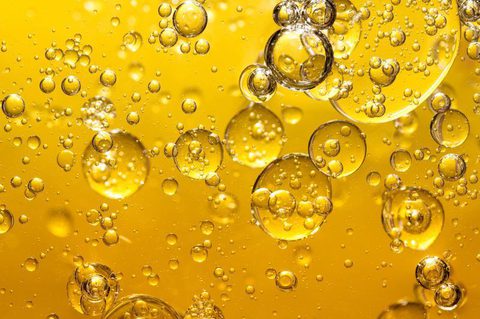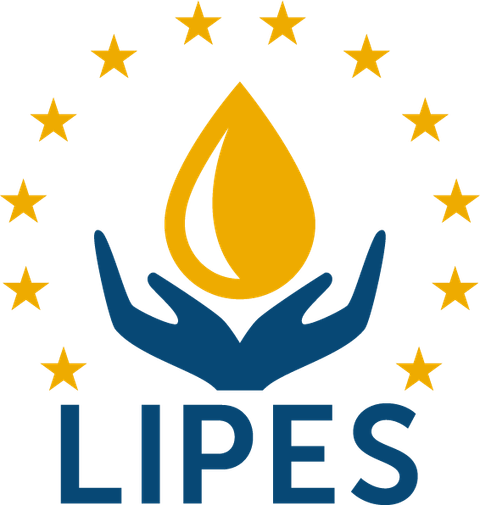

Development of a Novel Lipase for European Funded Horizon 2020 Project LIPES
Identifying a greener and more sustainable solution for the modification of different vegetable oils to produce a range of fatty acids.
This case study outlines the initial stages undertaken by Biocatalysts Ltd as part of the LIPES (Life Integrated Process for the Enzymatic Splitting of Triglycerides) project. This European funded Horizon 2020 project was put together with the aim of developing a more efficient and environmentally friendly process for producing free fatty acids (FA) at Oleon. Biocatalysts’ role is to develop and produce novel enzyme(s) for efficient hydrolysis of different types of oil.
OVERVIEW:
Biocatalysts Ltd are part of the LIPES project, a 5-year EU funded Horizon 2020 project aimed at creating a new enzymatic process to produce selected commercially important fatty acids at an overall lower variable cost than the current processes and to showcase their use as intermediates in a wider range of applications. The project team consists of Oleon (scale up of enzymatic process for commercial production of fatty acids), STC Engineering (design and construction of the process plant), Teschnishe Universität Berlin (pilot scale process development), DSM (application tests) and Biocatalysts for identification and development of the enzymes. The overall project aim is to achieve a 45% saving on water consumption and an 80% saving on energy consumption.
PROJECT CHALLENGE:
Different types of vegetable oils are currently used by Oleon to produce a range of fatty acids; using high temperature processes (requiring huge amounts of water and energy consumption). Oleon wanted to find a “greener” and more sustainable solution to these processes. Enzymes were highlighted as a possible solution as they entail the implementation of less energy intensive processes. The project challenge was to enzymatically produce selected commercially important fatty acids at an overall lower variable cost than the current processes.
Biocatalysts’ challenge was to identify and produce novel lipase enzyme(s) for different types of oils. Alongside standard vegetable oils, the work focuses on a specific type of oil for which there is currently no commercially available lipase that can perform the hydrolysis reaction at the required yield.
APPROACH:
At Biocatalysts we produced a panel of lipase enzymes based on the specificity of the oil substrate used for the hydrolysis reaction. We followed our ‘Design for Manufacture’ (DFM) approach to ensure that any enzyme(s) selected had already been evaluated at the start of the project for its operational (high production yield and downstream processing) and regulatory requirements. The panel of new lipases was sent to Oleon for evaluation with the specific oil and one of the enzymes performed within the selected parameters.
Using Biocatalysts’ expert knowledge, this enzyme was scaled up to produce a more commercially representative sample of the enzyme via small scale fermentation and DSP processes (ensuring both processes are scalable and transferable to full scale manufacture of the enzyme). The larger sample produced was sent to Oleon for further testing for hydrolysis of the specific oil at laboratory scale (<100mL) and at small scale reactor level (<5L). Results from Oleon confirmed the new lipase was suitable for the hydrolysis of this specific oil and Biocatalysts were requested to scale up the process to produce the new enzyme at small commercial scale to provide a sufficient quantity of enzyme for process scale up trials at the project partners (Oleon and TUB).
NEXT STEPS:
The commercially produced enzyme has been sent to the project partners (Oleon and TUB) to progress the process development work at 5-10L. The aim is then for Oleon to perform pilot scale development work (200L) by end of 2019/early 2020. This will require Biocatalysts to scale up the enzyme production process to medium / large scale production; with the aim being for this new lipase to be commercially available to Oleon by the end of the project (August 2021).
CONCLUSION:
This project commenced in 2016 and has been a collaborative process from the start, with all parties contributing their expertise. Any project with multiple stakeholders needs clear and honest communication and open knowledge sharing. This is the first European funded project that Biocatalysts has been part of and it has given us exposure and knowledge to process development (including reactor design) and how our enzyme(s) behaves and can be used in these types of processes.
We are delighted to be part of this UK/European funded project to help make the world more sustainable.
This project has received funding from the Bio Based Industries Joint Undertaking under the European Union’s Horizon 2020 research and innovation program under grant agreement No 720743.
